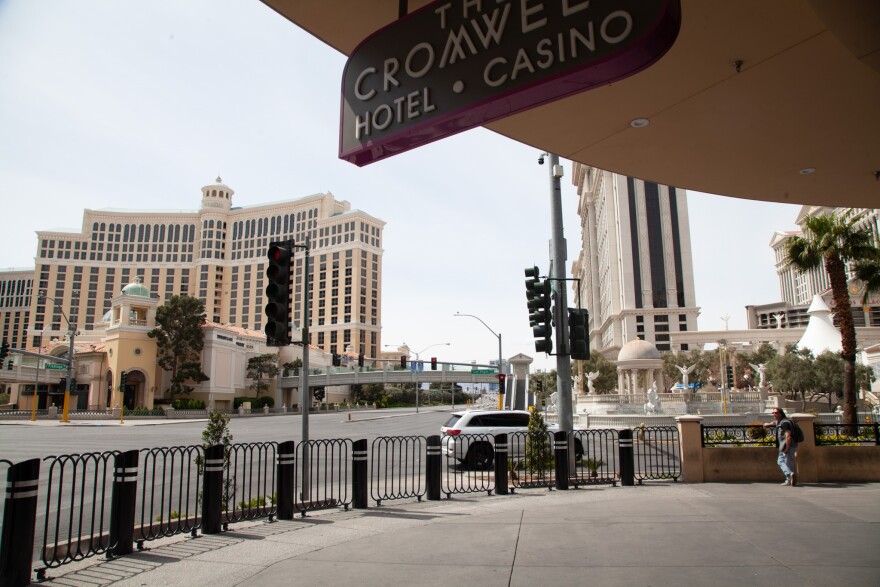During the coronavirus-caused economic downturn, few industries have been hurt more than hospitality.
And few universities send more people into the hospitality industry than UNLV.
At an online alumni association event on Friday, professor and gaming historian David Schwartz will speak about how Las Vegas can come back.
In describing the presentation, the alumni association says Schwartz will “explore how Las Vegas can adapt to be a paragon of a healthy, prosperous, and caring community.”
Schwartz told State of Nevada that means Las Vegas must be prepared to address visitors’ safety concerns.
“It’s always been about responding to what the traveling public wants,” he said. “I think now in 2020, their health and safety is going to be top of mind and they will adapt to provide that.”
Some ideas for addressing safety concerns could be lowering the density in gaming areas or taking temperatures of guests when they enter the property.
“I think what we’re going to find as we start to learn more about this there will be some best practices that emerge and they probably unite around those,” Schwartz said.
Several of the largest gaming companies have released their safety plans for guests and workers. The Nevada Gaming Commission approved rules for when casinos can open that include limiting customers, socially distancing gamblers and cleaning dice and cards.
Even with those guidelines in place, Schwartz said it will really come down to just how comfortable guests are with returning.
He also said Las Vegas might try going back to the future and focus on being more of a value destination. Options include dropping parking and resort fees and bringing back amenities like live lounge acts.
"This is a good opportunity for people in the industry to really look at that value proposition, which historically was what built Las Vegas," Schwartz said.
The problem with dropping fees is that many gaming companies have built them into their budgets; however, if they can bring back guests by giving them a bargain, they'll be making more than they are now, which is zero.
Schwartz said in February the Strip was benefitting from relatively cheap travel and relative affluence. It had evolved over the last few years to meet that more affluent market.
“That market is not here today and we don’t know whether it’s going to come back. So the key thing is to be able to pivot to find a new market and historically, Las Vegas has always done that in the past,” he said.
During the 90s, the city was geared toward visitors who wanted to sit in front of slot machines for hours at a time. Then, it moved towards people interested in live shows and dining.
Schwartz said resort operators need to look back at what has worked to bring in people in the past and make it work for today's traveler.
“I think if you look back at the history of Vegas it’s not the way things have been for the past two years or three years or since the recession but what has worked over the whole history of the city,” he said.
His virtual workshop is open to all and kicks off “ Rebel Recharge,” a new monthly lunch-and-learn series put on by the UNLV Alumni Association.
David Schwartz, UNLV professor, gaming historian








